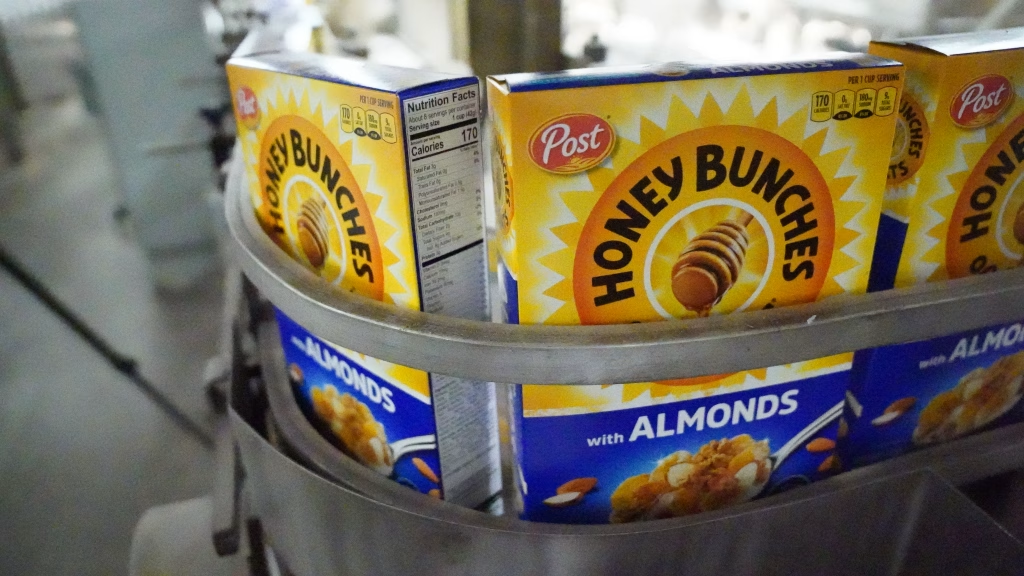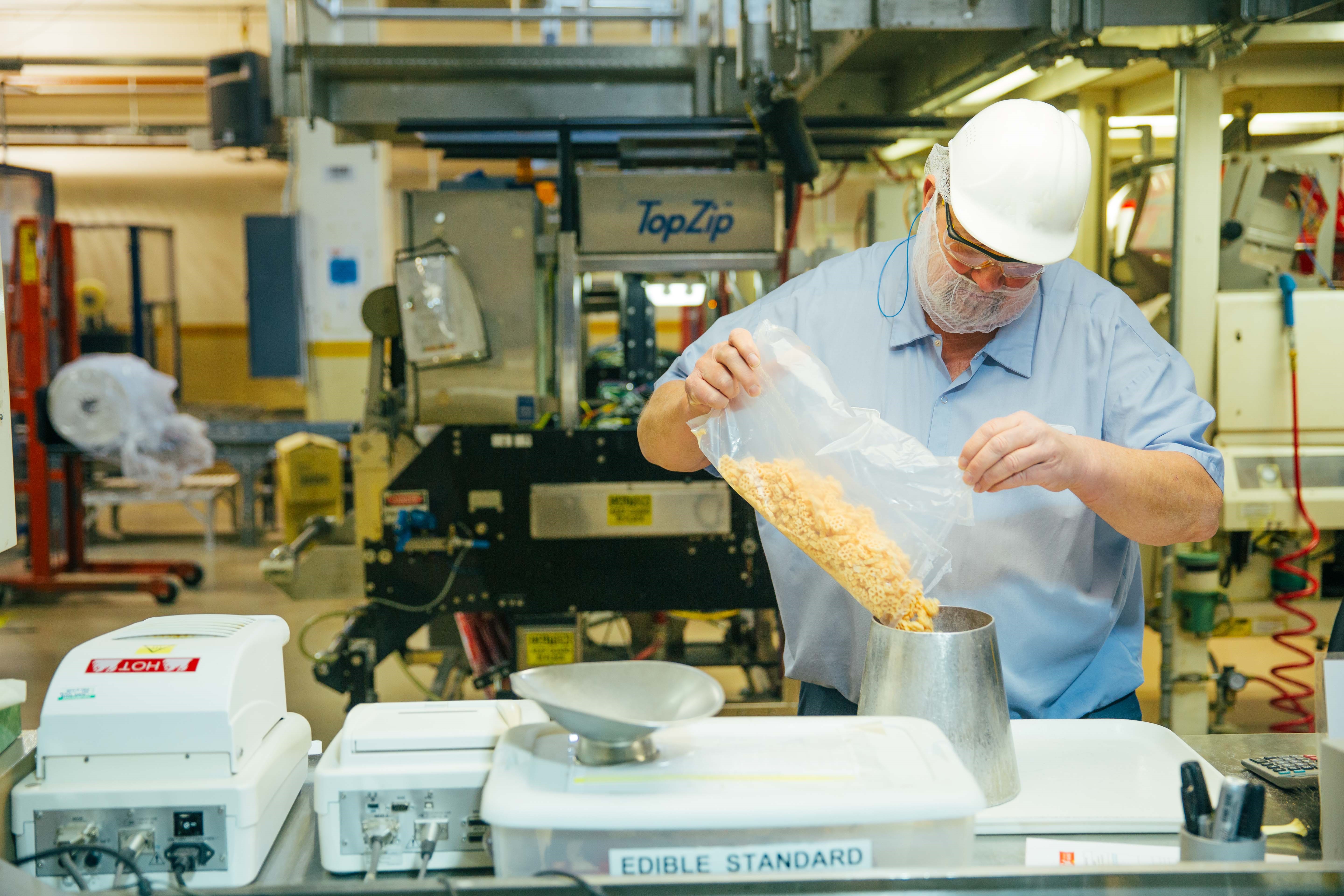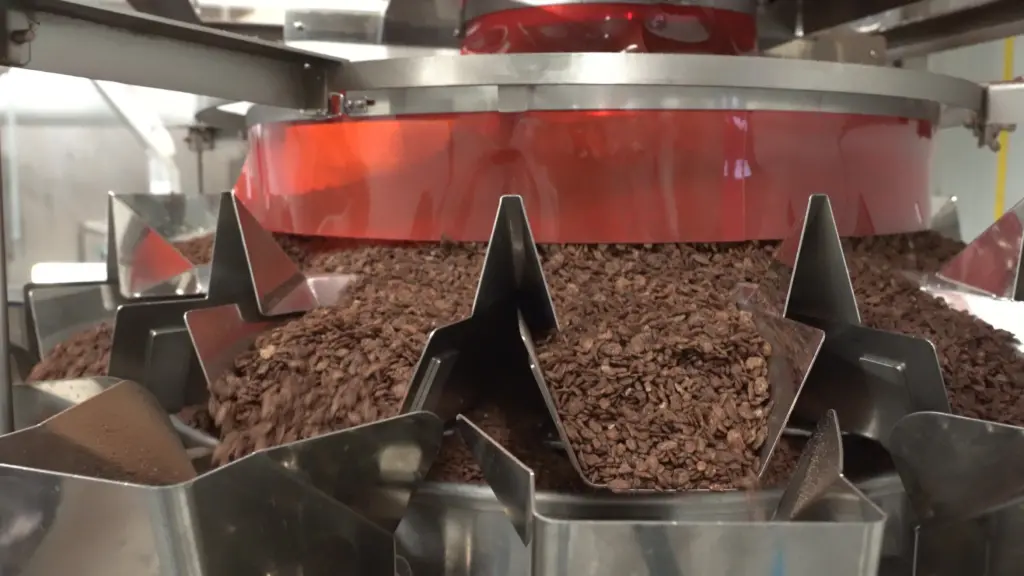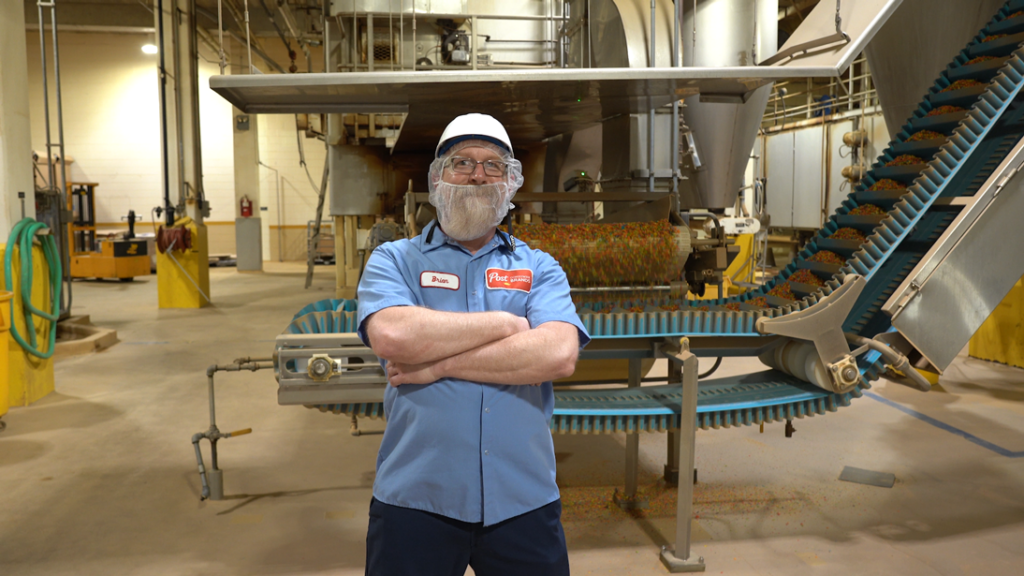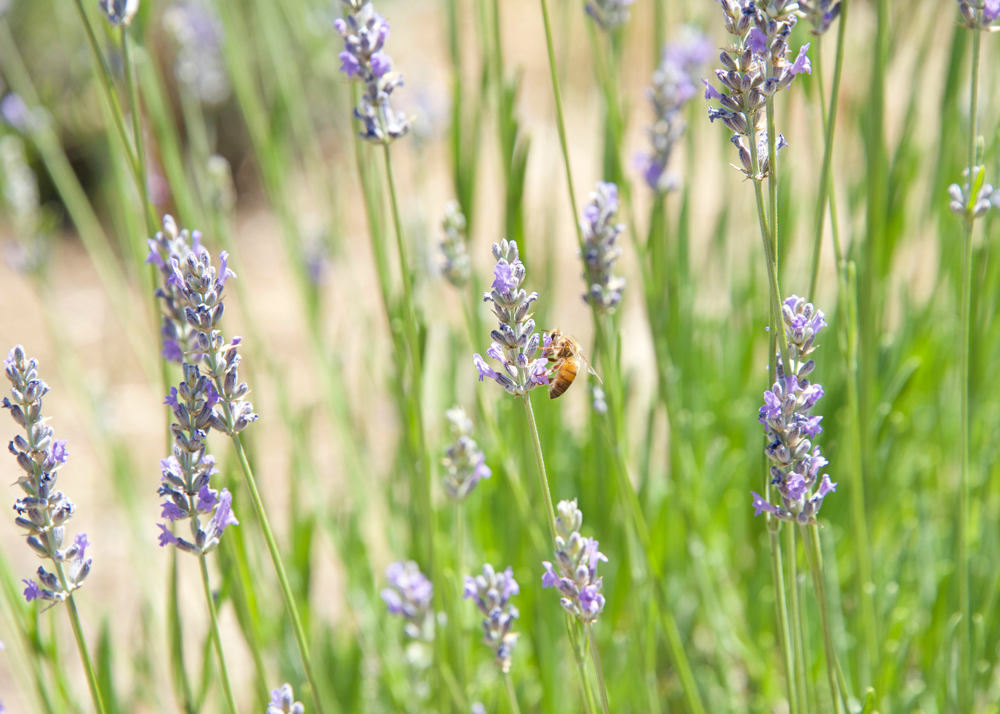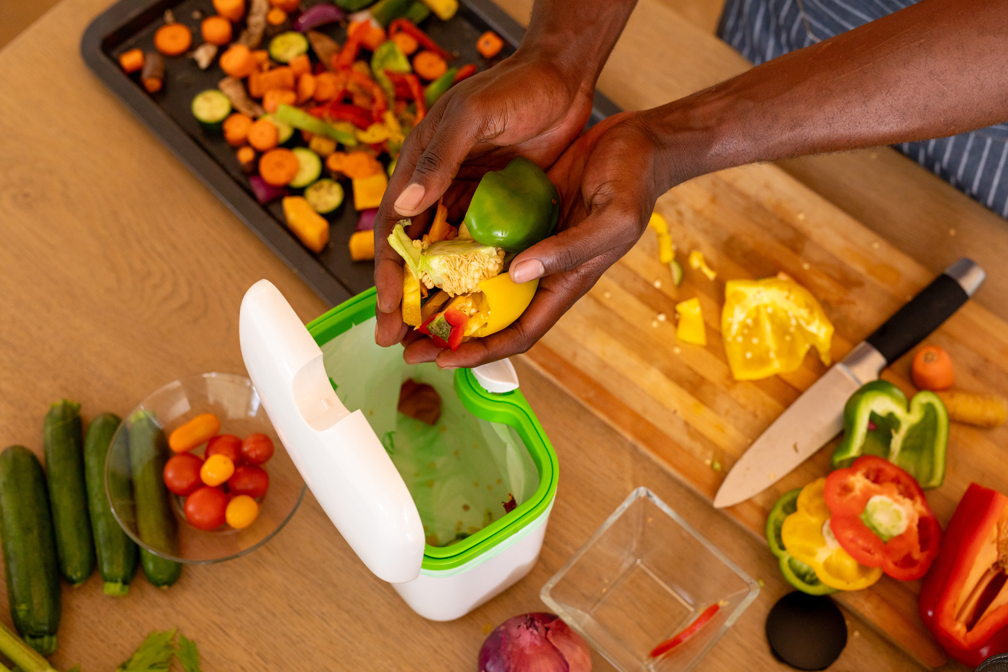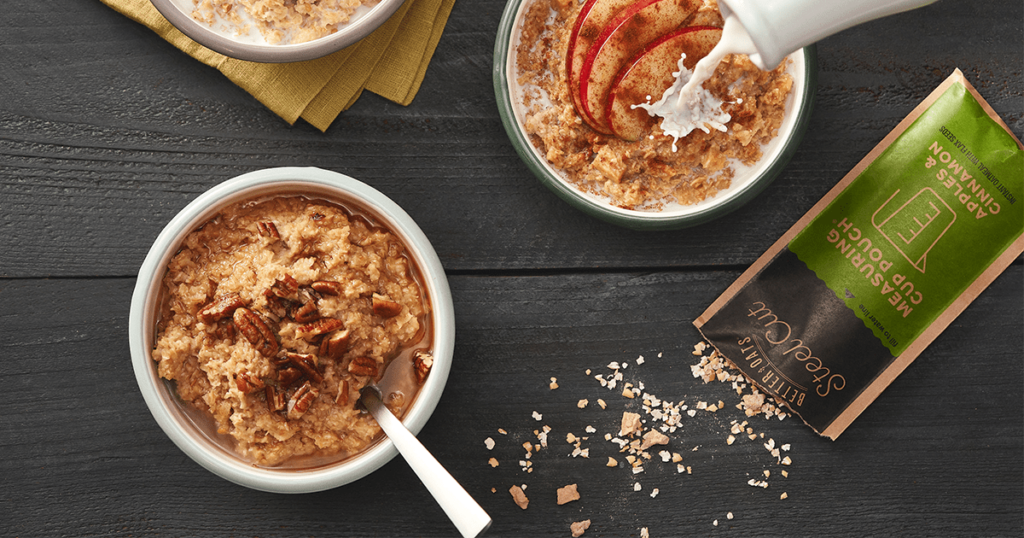Reducing food waste
At Post Consumer Brands®, we aim to eliminate food waste at the source, by evaluating our process for efficiencies. Any remaining waste, we aim to recycle, convert to energy or repurpose. Last year, we diverted 96% of our waste from landfills, keeping food in the hands of those who need it and reducing the environmental impact of food waste.
Zero waste to landfill
Seven years ago the Post® team classified its Niagara Falls plant as a zero-waste-to-landfill. Efforts to to reduce or eliminate manufacturing and food waste from ending up in a landfill were successful with materials either recycled or reused.
Watch the video to meet our dedicated team behind our waste management and reduction efforts. Learn about the benefits to our company, our community and our natural resources.
“When I started as a site scientist, I realized that waste reduction was where I could make a significant impact. Not only did it help lower our operating costs and generate some cost savings for the business, but I felt like I was a good steward of the earth by making our processes more efficient and wasting less food.”
Julie Kindelspire, Senior Scientist
Resizing grains of rice use for production has saved over 100,000 pounds of food waste.
Preventing food waste in our operations
Post Continuous Improvement team works with partners across the company to evaluate our processes for efficiencies and opportunities to reduce food waste down to a grain of rice—literally.
At the Post plant in Jonesboro, Arkansas, research and development, and engineering teams determined a different-sized grain of rice would result in less ingredient waste and a better product, while maintaining the same high-quality product at the same price that families know and love. This innovation saved over $3 million and tens of thousands of pounds of food waste.
In 2022, we diverted 96% of our waste from landfills.
Diverting waste from landfills
When food waste is inevitable, our manufacturing and distribution teams focus on recycling or repurposing food. We are committed to evaluating our facilities for zero-waste-to-landfill opportunities, and many of our manufacturing plants are well on their way
The Post plant in Niagara Falls has been zero-waste-to-landfill for nearly a decade. This means virtually all waste is recycled, converted to energy or used as animal feed on local farms.
Sometimes, we end up with excess products in our warehouses. Each year, we donate and distribute millions of pounds of food through Feeding America’s nationwide network of food pantries. In our 2023 fiscal year, Post Consumer Brands donated about 55 million bowls of cereal and more than 1.5 million servings of peanut butter. Read more about our food donations.
Promoting biodiversity
Preserving biodiversity is a critical step to keeping the Post products you know and love on your plate or in your cereal bowl. Read about a few of our efforts to promote and preserve biodiversity across North America and right in our backyard.
Protecting local pollinator health
We have planted native Minnesota prairie grasses and pollinator plants in the grassy areas surrounding our headquarters building in Lakeville, Minnesota. These plants will allow pollinators to carry pollen from one plant to another, fertilizing plants and allowing them to make fruit seeds.
Spotlight: Post scientist Daniel Burton spends his free time surveying biodiversity in parks and preserves as a community scientist. He brings that same ecological approach to his job at Post.
Responsible supplier partnerships
Many of our largest commodity suppliers of wheat, corn and other critical ingredients have established programs to promote biodiversity. These farms use methods like cover crops or reduced tillage to prevent soil from wearing out and to support the local ecosystem with more crop varieties.
Committed to no deforestation impact
Forests are essential to preserving the biodiversity of plants and animals and combating climate change. We are committed to managing deforestation risks in our supply chains and protecting and restoring forests and other critical natural ecosystems. Read more about our deforestation policy and commitment to sourcing 100% of our commodities with no deforestation impacts in our Responsible Sourcing section.
How you can help reduce food waste
According to the Environmental Protection Agency, each person in the United States wastes one pound of food every day. While the most significant improvements in food waste will come from manufacturers, there are several steps we can take at home to reduce food waste and save money.
- Buy only what you need: Before heading to the store, plan your meals for the upcoming week and buy only what you need. This will help you avoid impulse buying.
- Store food properly: Store food in airtight containers or wrap it up in foil, plastic wrap, or waxed paper. This will help keep food fresher for longer.
- Use frozen or canned food: Utilize frozen or canned foods when available, as they stay fresh longer.
- Compost: Composting is a fantastic way to reduce food waste and create nutrient-dense soil for your garden. Start taking steps to start your composting project!
Our latest environmental sustainability efforts
January 10, 2025
Making delicious food accessible for all starts with our corporate initiatives. Check out the 2024 Post Holdings Sustainability Report to review efforts towards making a positive impact on the environment and our communities––and our plans to come in 2025.
October 9, 2023
Learn about the latest trends in cereal packaging at Post Consumer Brands®. We’re prioritizing both sustainability and convenience, bringing you products that are better for the community and your daily life.
March 3, 2023
Post Consumer Brands® manufacturing plants work to optimize water usage by implementing sustainable practices.
previous slide
next slide
